











Read More
As part of our industry-focused curricula, we, at Assam down town University, with an open collaborative learning ambience offer our students a platform to launch their careers in the right sector. Evolved as one of the best mechanical engineering colleges, we intend to train the skilled workforce to match industry expectations.
Year wise Course Details
Courses for this semester
Calculus and Linear Algebra is a fundamental course designed to provide students with a comprehensive understanding of essential mathematical concepts that underpin various fields of science, engineering, economics, and technology. The course seamlessly integrates the principles of calculus and linear algebra, equipping students with a strong mathematical foundation crucial for advanced studies and problem-solving in Mechanical Engineering courses.
This course introduces the fundamentals of mathematics. It also introduces problems based on logic and reasoning and builds the foundation for development of basic programming skills.
The course of Engineering Physics for Civil and Mechanical Engineers would give insight to understand the physics and its applications in day to day life. However to apply the basic principles wherever applicable.
The course of Workshop Practices for Mechanical Engineers would facilitate the development of basic skills an engineer is expected to posses to supervise construction activities like brick masonry, woodwork, concerting, welding, finishing etc. including quality control and maintenances of safety to self, coworkers and the constructed components of the building.
The Extra-Curricular Activity course is designed to provide students with opportunities to explore their interests, develop new skills, and engage in activities beyond the traditional academic curriculum. This course encourages students to participate in a wide range of extracurricular activities such as sports, arts, debate, community service, and leadership programs. Through these activities, students will enhance their teamwork, leadership, communication, and time management skills, fostering personal growth, social interaction.
There is an increasing attention to ethics in engineering practice. Engineers are supposed not only to carry out their work competently and skilfully, but also to be aware of the broader ethical and social implications of engineering and to be able to reflect on these. According to the Engineering Criteria 2000 of the Accreditation Board for Engineering and Technology (ABET) in the US, engineers must have “an understanding of professional and ethical responsibility” and should "understand the impact of engineering solutions in a global and societal context.”
Courses for this semester
ODE, Probability and statustics aims to provide civil engineering graduates with a comprehensive understanding of advanced mathematical concepts and techniques applicable to engineering problems. Students will develop proficiency in differential equations, linear algebra, and numerical methods, essential for modeling and analyzing complex engineering systems. The course seeks to cultivate critical thinking and problem-solving skills, enabling graduates to apply mathematical principles effectively in engineering design, analysis, and decision-making processes. Through theoretical instruction and practical applications,
Chemistry Engineers aims to equip civil engineering graduates with a fundamental understanding of chemical principles and their applications in engineering contexts. Students will learn the properties of construction materials, corrosion mechanisms, and environmental impacts, enabling them to make informed
Engineering Drawing aims to equip civil engineering graduates with the essential skills to communicate and visualize engineering concepts through graphical representation and design principles. Students will learn to create accurate technical drawings, blueprints, and schematics using industry-standard software and drafting techniques. The course emphasizes spatial visualization and geometric modeling, enabling graduates to interpret and generate engineering designs effectively. Through hands-on projects and assignments, students will develop proficiency in interpreting and creating engineering drawings, preparing them for real-world applications in design, construction, and project management within the civil engineering field.
Programming for Problem Solving" aims to equip civil engineering graduates with essential programming skills to tackle engineering challenges efficiently. Students will learn to use programming languages to model, simulate, and analyze civil engineering systems, enhancing problem-solving capabilities. The course fosters algorithmic thinking and logical reasoning, empowering graduates to develop innovative solutions to complex engineering problems. Through hands-on coding exercises and real-world applications, students will cultivate proficiency in programming languages relevant to civil engineering practices. Ultimately, graduates will be prepared to leverage computational tools to optimize designs, improve project efficiency, and contribute to sustainable infrastructure development.
This course aims to equip civil engineering students with the entrepreneurial mindset, skills, and tools needed to identify and capitalize on opportunities within the civil engineering and construction industries. The program combines principles of entrepreneurship with technical insights from civil engineering, enabling students to develop innovative solutions, create business models, and navigate the challenges of launching and managing ventures in the infrastructure sector.
Courses for this semester
The study of the course of Bioengineering is based on the usage of biological advancements in the field of engineering to create products that can benefit both fields as well as mankind. It deals with several aspects of energy, biomaterials as well as the environment and helps integrate them into engineered technology.
This course provides an introduction to the most powerful engineering principles. Thermodynamics is science of transferring energy from one place to another. It introduce the tools one needs to analyze energy systems from solar panels, to engines, to insulated coffee mugs. More specifically, it will cover the topics of mass and energy conservation principles; first law analysis of control mass and control volume systems; properties and behavior of pure substances; and applications to thermodynamic systems operating at steady state conditions.
This is a course that typically combines concepts from discrete mathematics and mathematical transforms. It includes Laplace transformation, Fourier transformation, Z transformation, Wavelet transform, etc.
This course is designed for III-semester engineering students. It is intended to develop an understanding of electrical and Electronics models and their analysis of Basic Electrical components, Basic Circuit design, and correction elements. The course also involves semiconductor fabrication.
The objective of this Course is to provide an introductory treatment of Engineering Mechanics to all the students of engineering, with a view to prepare a good foundation for taking up advanced courses in the area in the subsequent semesters. A working knowledge of statics with emphasis on force equilibrium and free body diagrams. Provides an understanding of the kinds of stress and deformation and how to determine them in a wide range of simple, practical structural problems, and an understanding of the mechanical behavior of materials under various load .This course teaches students how to apply Newtonian physics to relatively simple real life applications. This course covers statics, dynamics and elementary part of strength of materials conditions.
This course will help the students to learn about the different engineering graphical view in 2D as well as 3D. Different types of machining processes used in the industry can be learnt through this course.
Extracurricular activities are programs that are not part of the regular school curriculum; and, are structured around an activity, goal, or purpose. Also known as extra-academic activities, extracurricular activities include sports, student government, community service, employment, arts, hobbies, and educational clubs. Extracurricular activities complement an academic curriculum.
This course focuses on the principles, codes, and engineering practices involved in designing fire protection and life safety systems for buildings, industrial facilities, and public spaces. It equips students with the knowledge and skills to design, implement, and evaluate systems that ensure occupant safety and property protection during fire emergencies.
This course introduces students to the concepts and techniques of computational thinking—a problem-solving approach that involves breaking down problems, creating algorithms, and leveraging computational tools. It equips students with the skills to analyze complex issues, design efficient solutions, and use programming to implement and test these solutions.
Courses for this semester
This course presents the theoretical and thermodynamic background for the internal combustion engine and gas turbine engine cycles, aviation and rocket propulsion cycles, refrigeration cycle, steam and gas power cycle, and psychometric concepts. This course aims to provide a good platform for mechanical engineering students to understand, model, and appreciate the concept of dynamics involved in thermal energy transformation and to prepare them to carry out experimental investigation and analysis at later stages of graduation.
This course offers basic knowledge of fluid statics, dynamics, and hydraulic machines. The objective of this course is to enable the student to understand the laws of fluid mechanics and evaluate pressure, velocity, and acceleration fields for various fluid flows and performance parameters for hydraulic machinery. A substance that flows is called a fluid. All liquid and gaseous substances are considered to be fluids. Water, oil, and others are very important in our day-to-day life as they are used for various applications. For instance, water is used for generation. of electricity in hydroelectric power plants and thermal power plants, water is also used.
Strength of Materials is a fundamental engineering course that focuses on the behavior of materials under various loading conditions. This course provides students with a comprehensive understanding of the principles governing the deformation and failure of structural elements. Through a combination of theoretical concepts and practical applications, students will develop the necessary skills to analyze and design structures that can withstand different types of loads.
This course is designed for the IV semester students of Mechanical Engineering. This course is intended to develop an understanding of Measurement systems and performance models and its analysis at Instrumentation system elements, Signal processing and conditioning; correction elements. The course also indulges Control systems, and different types of Control method.
This course will help understand students the correlation between the internal structure of materials, their mechanical properties, and various methods to quantify their mechanical integrity and failure criteria. Provide a detailed interpretation of equilibrium phase diagrams. Learning about different phases and heat treatment methods to tailor the properties of Fe-C alloys. Materials scientists and engineers continue to be at the forefront of all of these and many other areas of science, too. Materials science and engineering influence our lives each time we buy or use a new device, machine, or structure. The definition of the academic field of Materials Science & Engineering stems from a realization concerning every application of materials: it is the properties of the material that give it value. A material may be chosen for its strength, electrical properties, resistance to heat or corrosion, or a host of other reasons; but they all relate to properties.
Courses for this semester
The course provides the concepts of different methods of heat transfer. The governing laws of heat transfer are explored and rates of heat transfer for various systems are analyzed. Principal concepts of heat transfer are applied in numerical solving related to real-world applications.
The course is vital for application of engineering problems in to reality. It has the major contribution towards the understanding of the deformation mechanics of the solid parts under the influence of various types of loading, accelerating motion etc. The introduction of tensor facilitates the ease of analysis of different
The course motivates students to understand and develop an appreciation of the processes in correlation with material properties which change the shape, size and form of the raw materials into the desirable product by conventional or unconventional manufacturing methods.
The course enables to understand the kinematics and rigid- body dynamics of kinematically driven machine components, the motion of linked mechanisms in terms of the displacement, velocity and acceleration at any point in a rigid lin. It also covers designing of some linkage mechanisms and cam systems to generate specified output
This course will help the students to learn about the different engineering graphical view in 2D as well as 3D. Different types of machining processes used in the industry can be learnt through this course.
This course provides an introduction to the concept, design, and implementation of Massive Open Online Courses (MOOCs). Participants will explore the evolving landscape of online education, understand the principles behind effective MOOC design, and learn how to engage a diverse audience in a virtual learning environment.
AdtU encourages a range of activities outside the regular curriculum intended to meet learner’s interest, These activities are aimed to develop the social and soft skills and promote a holistic development of the learners, Keeping in mind the 360 degree learning methodology the students are engaged in different activities headed under different clubs viz. Dance, music, photography, drama, literary etc., The students are encouraged to participate in regular club activities, workshops, competitions as per their interest and hobbies, The student members of the club are trained represent AdtU in various inter University student and national level competitions, Renewed personalities are invited to conduct workshops that benefit the members and students by giving them the platform to learn from experts in the respective fields
Co-curricular activities are enabled to supplement and complement the curricular or main activities.
Courses for this semester
The course provides knowledge on machines and related tools for manufacturing various components. It will help in understanding the relationship between process and system in manufacturing domain and identifying the techniques for the quality assurance of the products and the optimality of the process in terms of resources and time management.
The "Design of Machine Elements" course is an essential component of mechanical engineering education, focusing on the principles and practices involved in designing various machine components. Students will delve into the theoretical foundations and practical applications of design elements such as gears, bearings, shafts, springs, and fasteners. The course integrates engineering analysis, material science, and manufacturing considerations to impart a comprehensive understanding of the design process.
This course studies the fundamentals of how the design and operation of internal combustion engines affect their performance, efficiency, fuel requirements, and environmental impact. Topics include fluid flow, thermodynamics, combustion, heat transfer and friction phenomena, and fuel properties, with reference to engine power, efficiency, and emissions. Students examine the design features and operating characteristics of different types of internal combustion engines: spark-ignition, diesel, stratified-charge, and mixed-cycle engines.
Mechatronics is an interdisciplinary course that requires knowledge of different subjects e.g., mechanical, electronics, electrical, information technology, computer science, etc. The use of automation systems in industries, libraries, financial institutions, etc., has become possible due to the evolution of mechatronic systems. Robot technology is another dimension related to this course which enhances the health sector and automobile industries as well.
In this course students will discover the art of crafting a well-rounded college experience through extracurricular activities. By exploring the realms of leadership, team-building, and networking, participants will develop essential skills in planning, execution, and evaluation, while cultivating a sense of community and social responsibility. Through hands-on activities, case studies, and group discussions, students will learn how to identify and pursue their passions, build meaningful relationships with peers and mentors, and create a lasting impact on campus and beyond.
This course will help the students to work effectively, demonstrate employability skills and a commitment towards professionalism. It will also help the students to analyze and synthesize information related to business environment and to facilitate evaluation of strategic alternatives. This course is inter-disciplinary and based on utilization of business resources employing traditional means of approach, conducive for individual and societal growth & development.
This course is aimed to develop the social and soft skills and promote a holistic development of the learners, Keeping in mind the 360 degree learning methodology the students are engaged in different ac-tivities headed under different clubs viz. Dance, music, photography, drama, literary etc., The students are encouraged to participate in regular club activities, workshops, competitions as per their interest and hobbies, The student members of the club are trained represent AdtU in various inter University student and national level competitions, Renewed personalities are invited to conduct workshops that benefit the members and students by giving them the plat-form to learn from experts in the respective fields.
Courses for this semester
The course provides basic understanding of working of various power plants. The course explains in details various power plants such as steam power plant, gas power plant, nuclear power plant and hydroelectric power plant. Also the subject takes into consideration renewable,energy sources such as wind, tidal, solar, geothermal, biogas and fuel cell power system. The economics of power generation and its environmental aspects are also addressed.
Production and Operation Management (POM) focuses on planning, organizing, and controlling the processes involved in manufacturing goods and delivering services efficiently. It aims to optimize resources, minimize costs, and ensure high-quality outputs to meet customer demands.
The "Design of Machine Elements" course is an essential component of mechanical engineering education, focusing on the principles and practices involved in designing various machine components. Students will delve into the theoretical foundations and practical applications of design elements such as gears, bearings, shafts, springs, and fasteners. The course integrates engineering analysis, material science, and manufacturing considerations to impart a comprehensive understanding of the design process.
This course introduces fundamental statistical concepts and techniques used in data analysis. It covers descriptive statistics, probability theory, inferential statistics, hypothesis testing, and regression analysis. The course emphasizes both theoretical understanding and practical applications using statistical software such as Excel, SPSS, or Python.
A literature review is a comprehensive analysis of existing research on a specific topic. It is a critical component of academic writing, helping researchers understand the current state of knowledge, identify gaps, and position their own work within the broader scholarly context.
Courses for this semester
The course provides structured total quality management practices that can be applied to organization wide approaches of improving quality and productivity. The course aims to define principles of long-term success for an organization with ultimate customer satisfaction.
A Renewable Energy Engineering course provides students with the knowledge and skills needed to design, analyze, and implement renewable energy technologies
This course provides a comprehensive introduction to neural networks, a cornerstone of modern artificial intelligence and machine learning. It covers the theoretical foundations, design, and practical implementation of neural network models. Starting with basic concepts such as perceptrons, activation functions, and learning algorithms, the course progresses to more advanced topics, including deep learning architectures, optimization techniques, and real-world applications.

CST- Common scholarship test is a national and international level online MCQ based examination funded for intellectual empowerment by Assam down town University.
CST- Maximum enrolment each year is 269 seats and any 10+2 students can apply. Adtu is northeast India’s first placement driven university to provide 100% scholarship benefits worth 30 cr.
CST aims to inspire brilliant and competent students to pursue further education. Accredited with a prestigious grade by NAAC, UGC and AICTE.
Explore more scholarships that can help you reach out your goal with financial aid.
This scholarship is valid on the basis of the board/university examination
| 95% & above | 100% Scholarship on all semester |
| 90%-94.9% | 50% Scholarship on all semester |
| 80%-89.9% | 25% Scholarship on all semester |
This scholarship is valid on the basis of the board/university exam
| National & International Level | 100% Scholarship on all semester |
| State Level | 50% Scholarship on all semester |
| District Level | 25% Scholarship on all semester |
This scholarship is valid on the basis of the board/university exam
| National & International Level | 100% Scholarship on all semester |
| State Level | 50% Scholarship on all semester |
| District Level & NCC Certificate Holder | 25% Scholarship on all semester |
Discover a multitude of world-class amenities and cutting-edge resources at Assam down town University, enhancing your academic journey to new heights.
The Start-Up & Incubation Centre at Assam down town University provides a supportive environment for young entrepreneurs to develop and grow their business ideas. The center provides mentorship, funding, and networking opportunities to help innovative ideas become successful businesses.
SFURTI scheme to support rural entrepreneurs and innovators, an initiative by the Ministry of MSME
TIDE 2.0 scheme for ICT-based startups which provides a grant of Rs. 4L and Rs. 7L under EiR and Grant categories respectively, an initiative by the Ministry of MeitY.
dtVL Ideation, an incubation program for early-stage entrepreneurs with a market-ready solution/product, offering interest-free loans up to Rs. 2 lakhs.
Sprout UP, an incubation program for students, faculties, and researchers with innovative business ideas, prototypes, or technology solutions.











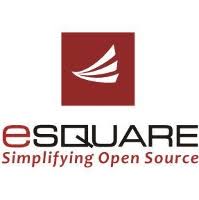











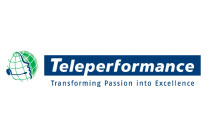








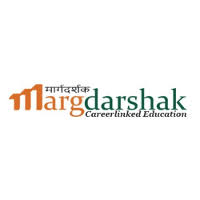

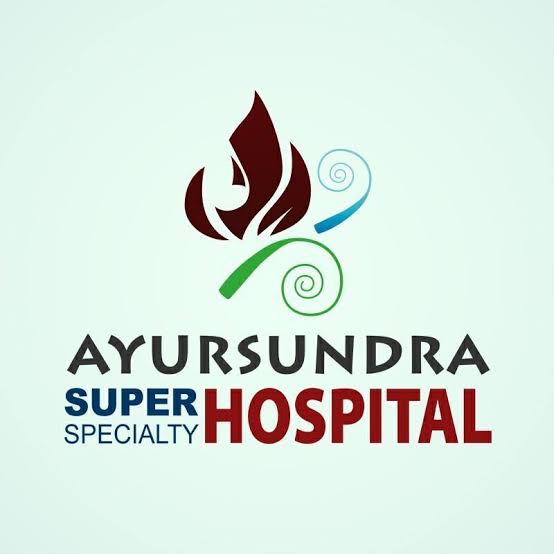
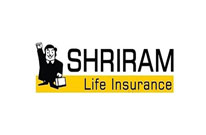



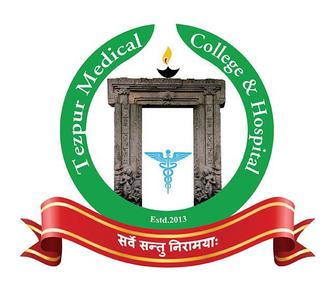










"I am a BBA student of 3rd semester. I hail from Bhutan. I vow that I am having a great experience i...
"AdtU is amazing. I am a BBA student of 2019-22 batch and I am just grateful for the amount of oppor...
Let us be grateful to the people and place who makes us happy. They are the charming gardeners whom ...
Currently I am pursuing MBA in Assam Down Town University. MBA is the professional course through wh...
AdtU is a university that focuses on giving knowledge, education and simultaneously making the stude...
The Assam downtown University has been a great learning experience. The university has provided me w...
My experience with AdtU has been splendid one indeed. Little needs to said about its scenic infrastr...
As a student I am very glad that I have got an opportunity to study here in Assam downtown universi...
My name is Sakhyajit Roy. I?m from Tripura. I joined the university on Auguest, 2017 as a student of...
I share immense pleasure to share my post graduate program experience in Assam down town University....
AdtU is a platform where I got golden opportunities to feed my zeal for knowledge through the dynami...
I am fortunate to get an opportunity to study here in Assam Downtown University. The best thing abou...
Our university is one of the best place for developing ourselves in the field of research and acedem...
ADTU is a university that is very good interms of infrastructure, academics and placements. Our tea...
It is one of best private colleges in North East India, it also provides a good environment for ed...
ADTU is a good University which provides the students with best quality lectures and ensures comfort...
The environment of Assam downtown university is very pleasant.The department of BMLT is very good a...
The university has all the necessary facilities and amenities for students . The classrooms and the ...
Assam downtown University is well recognised all over india. In the ongoing pandemic situation it ha...








